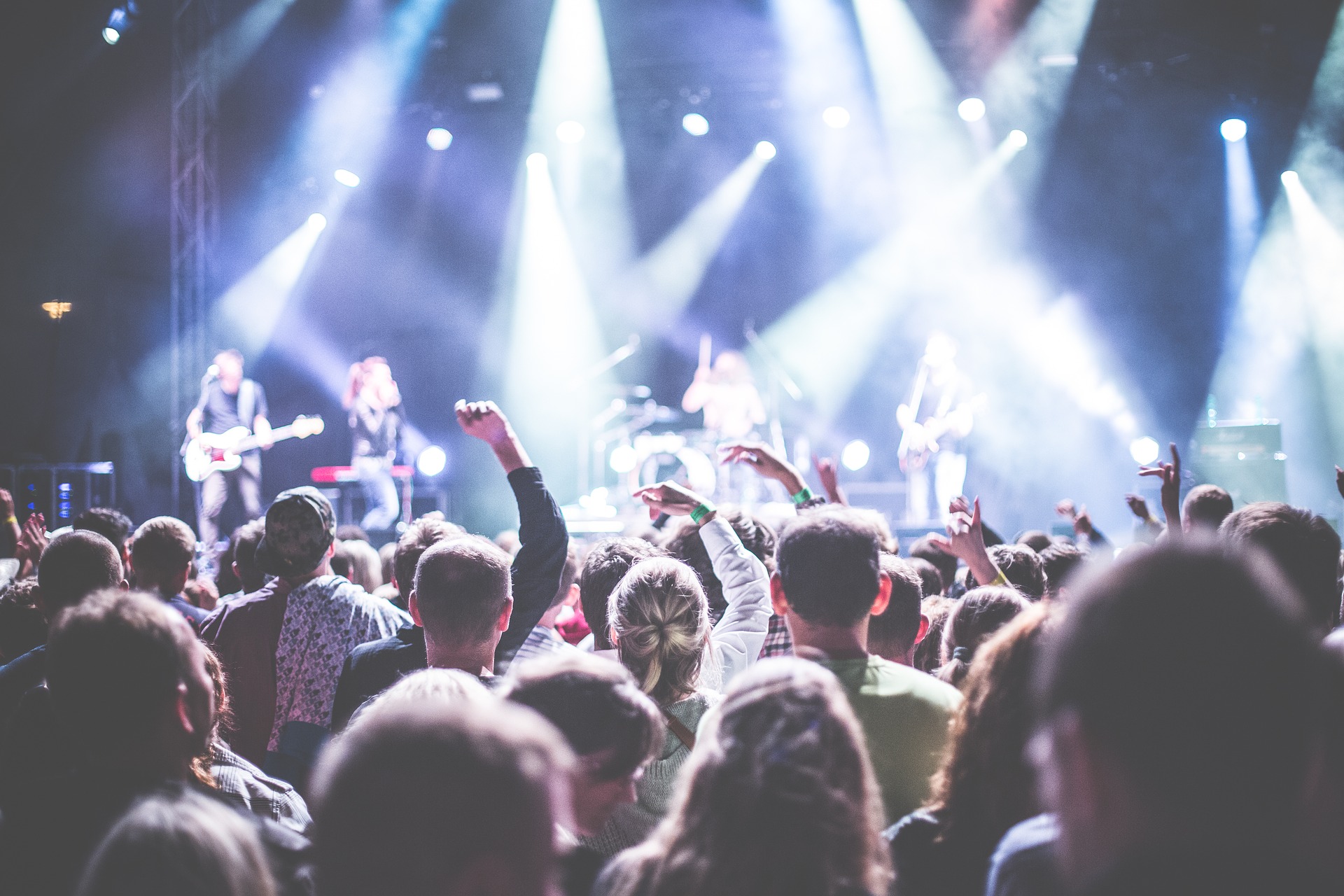Written by Michele Wheat

Going to music festivals is a great way to forget about school, have fun with friends, and meet new people. But while rocking out to good music might be your main focus, there's a lot going on at music festivals that can put you at risk. Large, excited crowds can quickly become overwhelming and dangerous for a number of reasons. Even traveling to and from the event can put your safety at risk if you're not careful. The key to staying safe at a concert or music festival is to be prepared.
Planning for a Good Time
A little research before a music festival can eliminate confusion on the day of the event and help you know where important places are located. Check out the layout of the venue, particularly if it's one you've never been to, to make sure you know where the exits, medics, and bathrooms are as well as where you can find food and drinks. The last thing anyone wants to do is wander around lost at a crowded festival when they fill sick or have an urgent need to go to the bathroom. If it isn't possible to find out the layout of the festival in advance, get there early enough to walk around and find things.
Also, pick a spot to meet up with the friends you're going with if you don't travel there together or if you get separated. Sending a text can help you meet up, but only if everyone's phone is charged and they know where things are. It's also important to plan out what to do if there's an emergency like an attack or fire. Know where the exits are, and decide in advance where to meet up with friends if you are separated.
Transportation Safety
If you're picking up your friends to go to the show together, keep in mind that you don't want your excitement about the show to distract you from driving. Having too many friends in the car and playing music too loudly can make it harder to pay attention to the road. When driving friends, only take a few, or just meet up with them at the venue. Ideally, ask a parent to drive you to and from the concert. You'll be glad you did when the show lets out: You're likely to be tired, and the parking lot and roads will be crowded as everyone tries to leave at the same time, so it's better to leave the driving to an older adult who has more experience behind the wheel.
Also, never walk to or through the parking lot or anywhere at the concert or festival alone. Use the buddy system, where everyone is with someone at all times. People who want to commit a crime often look for people who are alone and seem vulnerable.
If your driver leaves early or is under the influence of drugs or alcohol, call home for a ride. Never leave the venue with intoxicated friends or with people you've just met. New acquaintances may seem nice, but getting in the car with them can be dangerous.
Drugs and Alcohol
There's more going on at concerts than just good music. Many people drink alcohol or use drugs at concerts, and there's a good chance you'll encounter people who are using one or both. You might see people at music festivals doing Ecstasy, also known as Molly or MDMA, or using hallucinogenic mushrooms or LSD. These substances can make people feel energized, happy, or relaxed, but they can also cause horrible side effects like paranoia or suicidal thoughts. Also, both types of drug raise your blood pressure and heart rate, which can be a big problem at a hot, crowded festival. Emergency room visits and deaths at music festivals due to drug use are not uncommon.
Drinking alcohol at a concert can also pose dangers. Alcohol can cause dehydration, which is a real problem at music festivals, as people often hydrate less, overexert themselves, and become overheated. If left untreated, dehydration can cause a severe electrolyte imbalance that's life-threatening. Alcohol also lowers your inhibitions, which raises your risk of doing something regrettable or dangerous.
Because it's so loud, crowded, and frenzied at concerts, there's also the risk that someone may slip drugs such as Ecstasy, GHB, ketamine, or Rohypnol (commonly called "roofies") into your drink. These drugs can make you unable to move, think clearly, or remember what happened later, setting the victim up to be sexually assaulted or otherwise taken advantage of. To avoid the risk of involuntary drugging, it's important that you keep an eye on open drinks at all times. Never let your drink out of your sight: If you lose track of it, get rid of it and get another one. Also, never accept drinks from strangers.
Although movies, and some teens, may make it seem like you can't have a good time at music festivals without using drugs or alcohol, it isn't true. You can dance, sing, and lose yourself to the music without the help of chemicals. Remember that you're there to enjoy the show and make good memories, and it's harder to do that if your mind is clouded by drugs or alcohol.